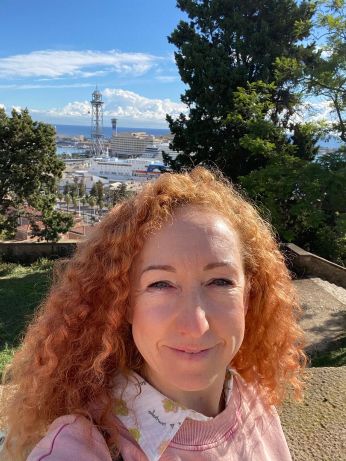By Hassan Humeida
Kiel, Germany
As Germany commemorates 35 years of unity since the historic fall of the Berlin Wall, AsiaN is publishing a special series of interviews with Germans who reflect on the country’s path to reunification. These accounts capture the experiences of individuals who witnessed the effects of breaking down barriers and opening doors to a shared future.
The reflections, marked by fairness and authenticity, highlight themes of dignity, resilience and hope. They move beyond surface narratives to offer deeper perspectives on the significance of reunification for Germany and for the world.
In keeping with its mission to present journalism grounded in shared humanity, AsiaN is committed to sharing these stories with readers across Asia and well beyond it.
Through these voices and their enduring messages, AsiaN seeks to remind the world that reconciliation, unity, and the bridging of divides are achievable ideals in today’s world.
Peace is an important foundation for the development of society

Interview with Doreen Jüttner – 51 years old; Official; Frankenberg, (East) Germany
My own experiences as a young person before German reunification
I was between 15 at the time. Since we had no experience of what life was like outside of the German Democratic Republic (GDR) up to that point, life was okay. Life was orderly, school was reasonably bearable, and we, as teenagers, hardly had any major problems.
Everyone had a roughly similar standard of living, and there was hardly any difference between rich and poor – which was certainly not a bad thing at that age. Friendship and community were very important, as were shared activities and sports.
Provision was adequate; in fact, there was no shortage of anything on a major scale. The other children, who had relatives in the West, had an advantage because they usually had something special, even if it was just a piece of chocolate from the West.
My feelings during the German reunification process
A feeling of uncertainty: What would happen next? What should I study? Which industry would survive? We did not want to move on a large scale. The area is beautiful, so it was a matter of making the right choices. There was a tremendous sense of optimism, along the lines of: “everything will be better now.”
How my life and society have changed in the last three decades
It feels like society has drifted apart. It is becoming more polarized, there are many extreme opinions, and there is hardly any mutual understanding, despite a reasonably reasonable economic situation. Our lives are good, our incomes are good, and we have reason to be content. Friends are still very important, and of course, so is family.
What I love about Germany as my homeland
Germany is still a very beautiful country. Even if some speak negatively about it, it is a beautiful country. The most important things are democracy, the social market economy, the free basic order, and law and order. These must be preserved for the future.
My own perspectives on the lessons of German reunification for a Korean reunification
A major mistake in reunification was the immediate takeover of the East by the West. It was not, in fact, reunification. It was an integration. This meant that parts of the inefficiently operating companies in the East had no chance of surviving.
A special economic zone should have been established in the East so that people in the East could have an income and thus an identity. As a result, these people slipped into unemployment relatively quickly, there was a lack of prospects, and well-educated people moved to the West, bleeding the East dry. Especially well-educated young women. This further exacerbated the situation in the East.
What advantages for Korea and its future about a possible reunification of the Korean Peninsula
Peace: Peace is an important foundation for the development of society.
Disarmament: Reducing military spending and increasing spending on meaningful things. I am not entirely sure, but I believe North Korea has relatively many natural resources. These could benefit the entire country if developed jointly.
I believe that the Korean people of North Korea and South Korea belong together. Similar to the GDR. It is also about humanity—including separated families. Korea itself could thus become a very large economic power in Asia.
And very importantly: Korea would then be the largest democracy in Asia after India and could unite with the other countries in Asia that are also democratic and form a counterbalance to China.
Korea’s development would be much faster and better than in India, since South Korea is the most highly developed country next to Japan. And, as I said, a true democracy.
What the path to tolerant and respectful coexistence among people worldwide looks like
Disarmament, peace, the spread of democracy. Acceptance of differences, but also the search for common ground.
Strengthening the UN, strengthening international law. Common rules.
Peace and security in the world mean the following to me:
For me, these are the most important points! And, as I said, democracy.




